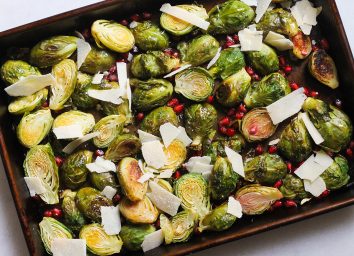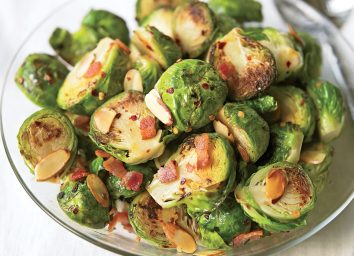What Happens To Your Body When You Eat Brussels Sprouts
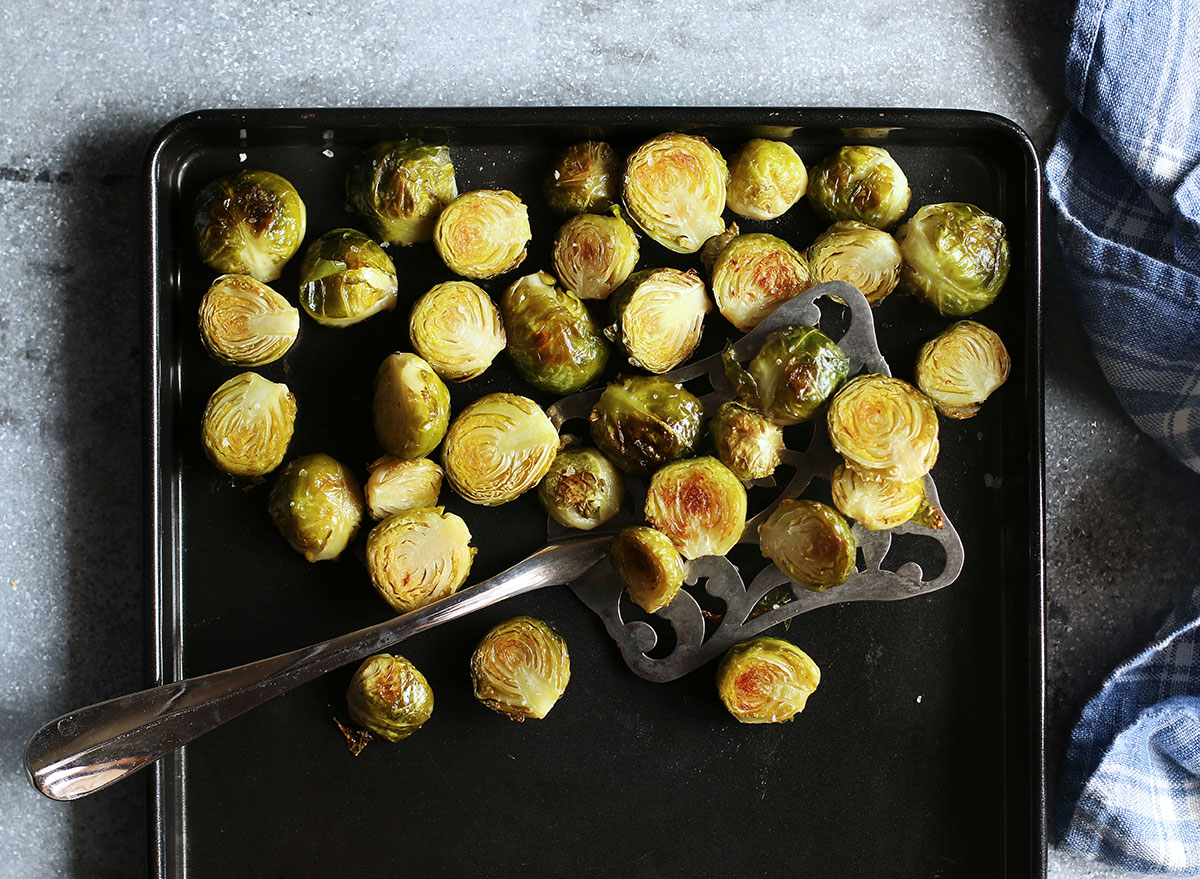
There are so many delicious ways to cook up Brussels sprouts. Between roasting them with different flavors or frying them up in a pan, Brussels sprouts are a tasty cruciferous vegetable that can do a lot for your body's health. But what exactly happens when you eat Brussels sprouts with your dinner or a tasty snack with a glass of wine? We spoke with a few registered dietitians regarding all the amazing reasons why you should eat Brussels sprouts regularly. Here's what they had to say, and for even more healthy tips, be sure to check out our list of The 7 Healthiest Foods to Eat Right Now.
They can help with preventing chronic disease.
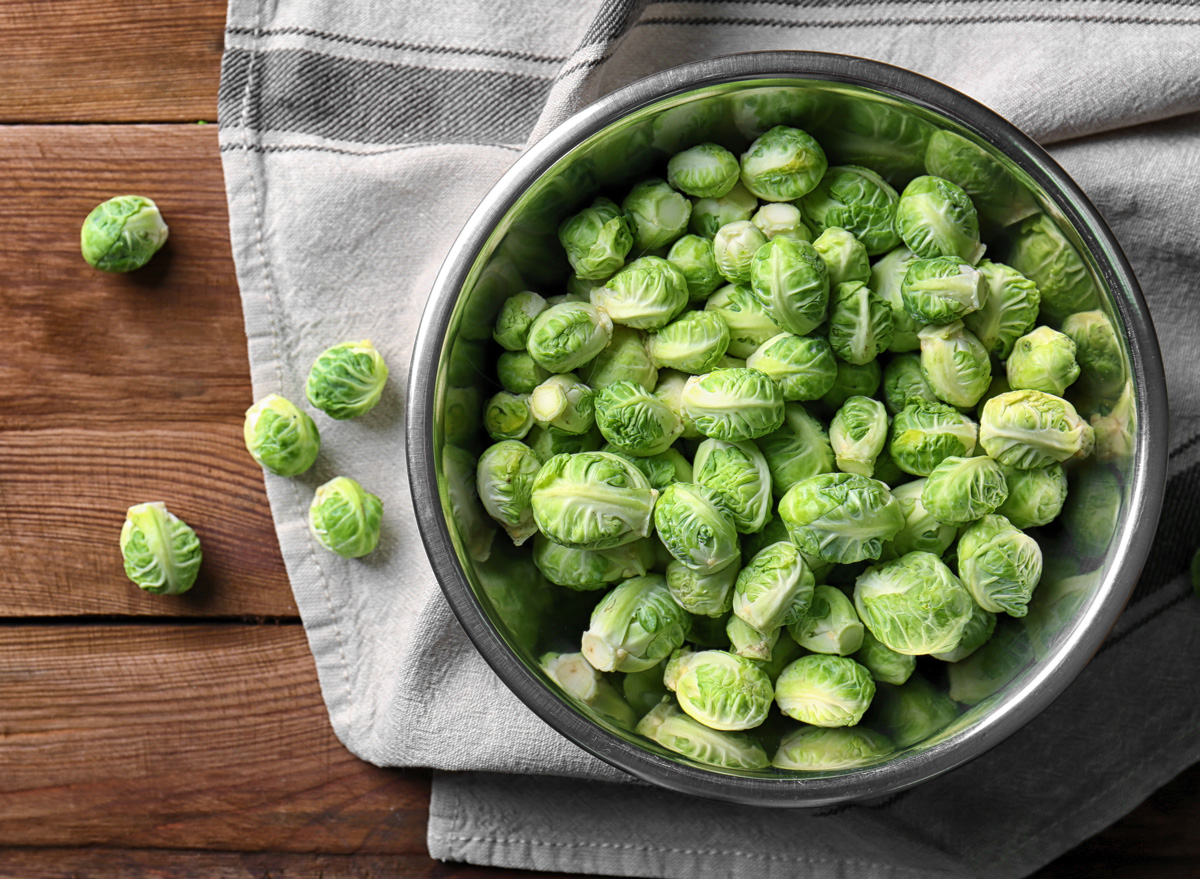
"Brussels sprouts are super healthy," says Lisa Young, PhD, RDN is author of Finally Full, Finally Slim. "A member of the Brassica family (along with broccoli and cauliflower), they are low in calories and rich in nutrients, including fiber, vitamin K and vitamin C. Vitamin K is good for blood clotting and bone health while vitamin C is an antioxidant which helps prevent chronic diseases including cancer and heart disease by protecting the body from free radicals."
Get even more healthy tips straight to your inbox by signing up for our newsletter!
They're great for heart health.

"This low carbohydrate, dark green vegetable provides the consumer with a number of nutrients and positive health outcomes, but the most fascinating is the fatty acid content," says Trista Best, RD with Balance One Supplements. "Brussels sprouts are one of the only plant sources of omega-3 fatty acids. They provide this nutrient through the alpha-linoleic-acid (ALA), which is an essential fatty acid that cannot be made by the body and must be taken in through the diet."
"Like all omega-3 fatty acids, ALA is a cardioprotective fatty acid that is found in the outer membrane of every cell in the body," says Best. "Its presence is important for immune function, healing, lung and heart health. Therefore, when you consume Brussel sprouts you are providing your body with a healthy plant fatty acid and simultaneously protecting against acute and chronic illnesses."
"Just half a cup of cooked Brussel sprouts provides you with 135 milligrams of ALA fatty acid," says Best. "Its low carbohydrate nature also makes this vegetable ideal to add bulk to a low-calorie diet for weight loss."
Along with Brussels sprouts, here are the 26 Best Omega-3 Foods to Fight Inflammation and Support Heart Health.
Your immune system will be stronger.
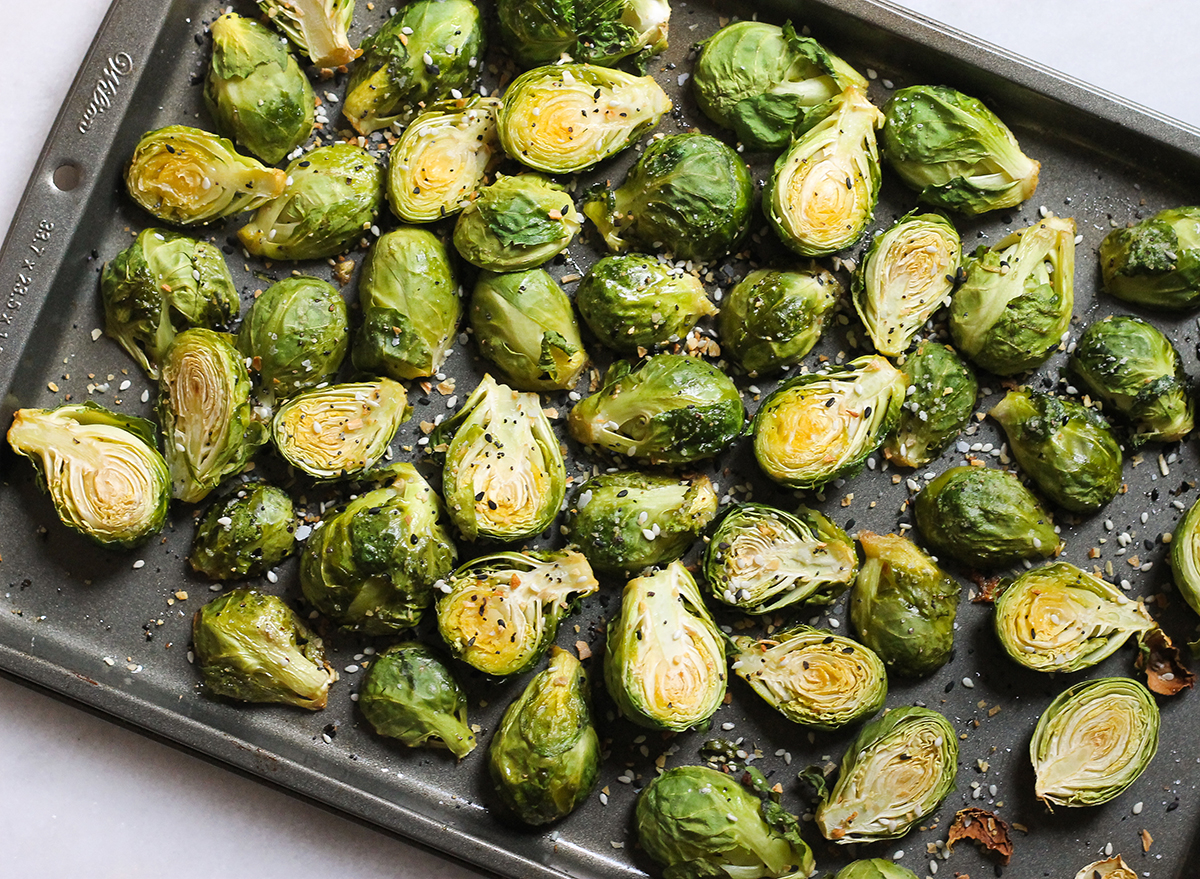
"Eating Brussels sprouts may help strengthen your immune system," says Amy Goodson, MS, RD, CSSD, LD. "One half-cup serving of cooked Brussel sprouts provides 81% of your daily vitamin C needs. Vitamin C is a powerful antioxidant, helps with tissue repair, and aids in keeping your immune system strong."
Here are 8 Ways to Support a Healthy Immune System, According to Harvard.
You'll feel fuller longer.
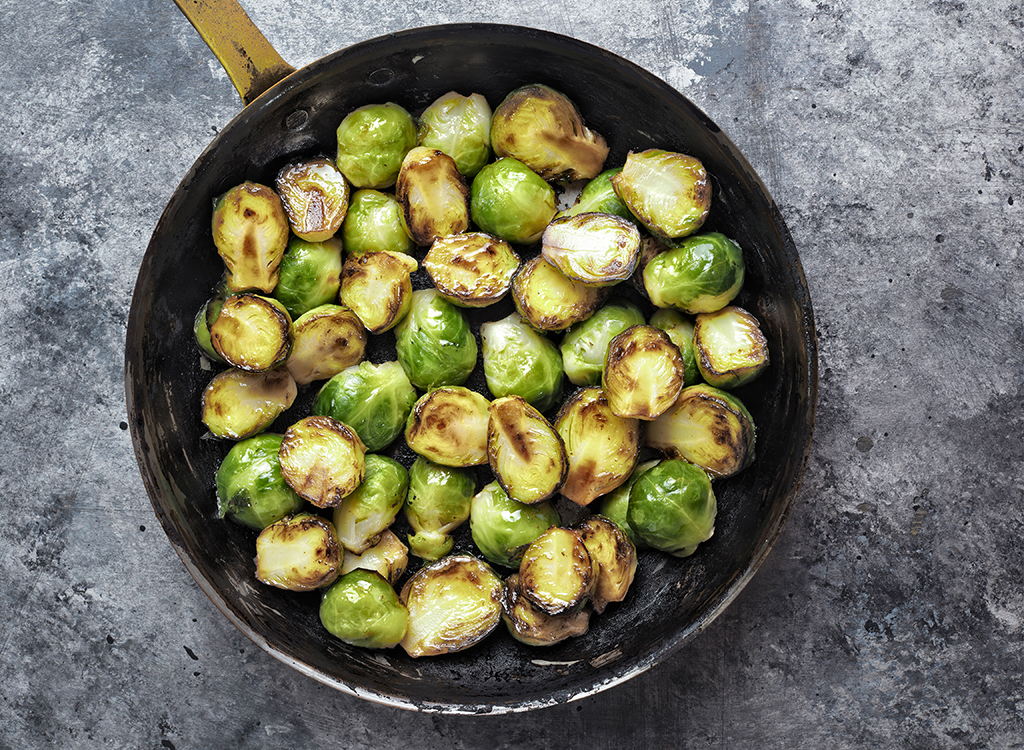
"Brussels sprouts are high in dietary fiber, which slows down the digestion process and promotes appetite-suppressing signals in the body," says Mackenzie Burgess, RDN and recipe developer at Cheerful Choices. "In turn, this leads to feeling fuller and more satisfied for longer. To further boost this satiety effect, pair cooked Brussels with a protein like roasted chicken, salmon, or lentils."
Here's One Surprising Side Effect of Eating More Fiber, According to Science.
They can help reduce inflammation.

"Brussels sprouts are a great source of minerals, fibers, vitamins, and antioxidants make them a nutritious part of your diet," says Shannon Henry, RD for EZCare Clinic. "They may also have additional health benefits that include a lower risk of cancer, reduce inflammation and improve blood pressure and blood sugar level. It also helps in weight loss."
They'll assist with your gut health.
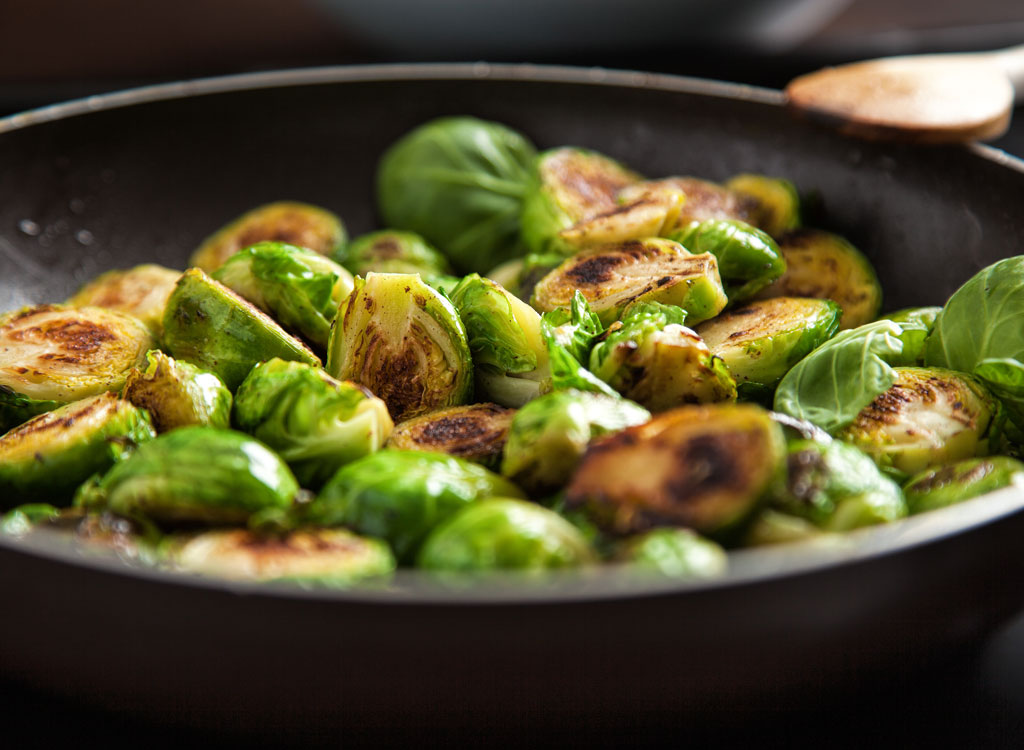
"Brussels sprouts are a fantastic source of soluble fiber, especially for those who are following a lower-carb diet," says Rachel Paul PhD, RD from CollegeNutritionist.com. "Soluble fiber feeds beneficial gut bacteria, and help us to go to the bathroom (number 2) easier."
